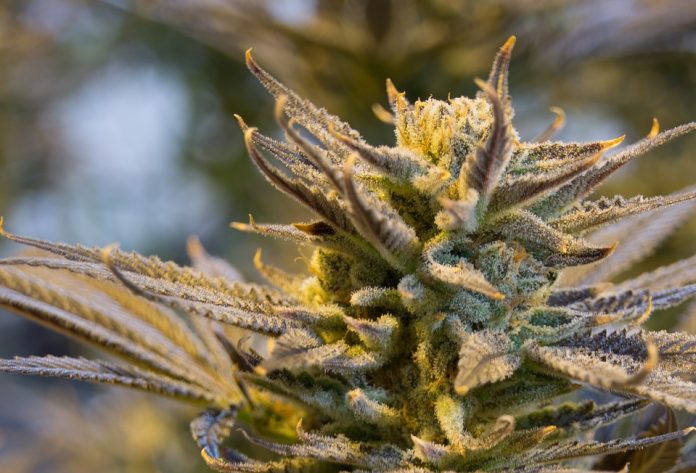Thursday marked the first anniversary of cannabis legalization.
It also marked the first day of cannabis edibles, extracts and topicals became legal for sale across the country. But don’t expect to be able to buy them for another few weeks. According to the provincial government, the new products are not expected to become available for at least 60 days, pushing the start date for edible, extracted and topical cannabis sales to late December or even early next year.
The regulations outlining what those new products would look like and contain came into force in June.
They include limits of 10 mg of THC per package of edible cannabis for eating or drinking, as well as per capsule or dispensed amount, and a limit of 1,000 mg of THC per package.
It also prohibits added vitamins or minerals, nicotine or added alcohol and places limits on caffeine. The products must be in plain packaging and not be marketed to children.
Labels can include the standardized cannabis symbol for products containing THC, a health warning message, THC/CBD content, the equivalency to dried cannabis, an ingredient list, allergens and intended use or a nutrition facts table, depending on the product.
The products also must not make cosmetic, dietary or health claims, or include elements that would associate them with alcoholic beverages, tobacco products or vaping products.
The federal government is also communicating ways to reduce your risk if you intend to try any of the new cannabis products. They recommend that you start with a low level of THC, for example, 2.5 mg or less in cannabis products that you eat or drink, and go slow. According to the federal government, compared to inhaling cannabis, it can take longer to feel the effects of cannabis you eat or drink, up to two hours to begin to feel the effects, and up to four hours to feel the full effects. The effects can then last up to 12 hours, with some residual effects lasting up to 24 hours.
They also emphasized that if you’re’ consumed cannabis, you should not drive.
Safe storage of cannabis is vital, they said, especially with edible cannabis, which may be mistaken by children, youth or pets for regular food and drink.
The provincial government also released a press release reminding residents of Saskatchewan’s rules surrounding the purchase and consumption of legal cannabis.
“Safety of cannabis products remains our key focus and we want to ensure people who choose to consume these products are aware of the risks,” Minister Responsible for Liquor and Gaming Authority Gene Makowsky said.
“One of the most important ways to consume cannabis products safely is to ensure you are buying products from a licensed retailer who obtains their supply through a regulated source.”
The province said that consuming any form of non-medical cannabis in public is prohibited, and possessing, consuming or distributing it in a vehicle could result in a $300 fine. Cannabis can only be in a vehicle while it is being transported from one lawful place to another, just like with alcohol.
Consumers can only carry up to 30 grams of dried cannabis or equivalent in public.
Employers still facing cannabis-related challenges, business group says
The same day the federal and provincial governments were educating people about the same use of edible, extracted and topical cannabis products, the Canadian Federation of Independent (CFIB) Business was reporting that employers are still facing challenges related to cannabis in the workplace.
According to a recent survey the CFIB conducted, almost six in 10 business owners rank their provincial government’s efforts to educate them as poor or very poor.
“Cannabis legalization posed some major new challenges for employers, especially in industries where the safety of employees or customers is a concern. We warned governments in the lead-up to legalization that their education efforts were severely lacking. A year in, and as new products become available, it doesn’t look like it’s gotten much better,” said CFIB president Dan Kelly.
“We’re finding that provincial governments still have not done a great job of informing employers of their responsibilities, relevant rules and regulations, as well as the resources available to them.”
According to the survey results, only eight per cent of businesses had experienced a cannabis-related incident in the workplace since last year. However, that number rises to 22 per cent for businesses with 100 to 499 employees. Businesses in hospitality were most likely to report having had an incident, with 16 per cent saying they had.
The survey also found that almost one third listed CFIB as a primary source of cannabis information regarding the workforce. Almost half did not have a primary source of information. Almost 60 per cent who did have a primary source of information felt “better equipped” to deal with cannabis in the workplace, CFIB said.
Still, 34 per cent of businesses do not have a drug and alcohol policy in place.
“Many small businesses don’t have an HR department or legal experts on staff so they need help and resources, but too often, their needs are treated as an afterthought when governments rush to introduce major new legislation,” added Kelly.
“I advise any business owners that are looking for information to visit cfib.ca/cannabis for tools and resources, including a free workplace drug and alcohol policy template.”


